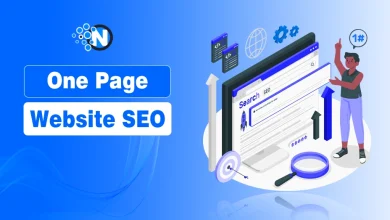How Proxy Servers Help with SEO and SERP Tracking

Have you noticed that Google search pull different results in two separate locations? Search engine ranking is important for a successful digital strategy, but when SEO specialists monitor their keyword performance in the regions they are targeting, they will often have a hard time finding the consistent, reliable results they need.
For example, what you might see in one city could look completely different in another and cause confusion and missed possibilities.
This is where proxy servers come in. With the help of these tools, professionals can bypass their search limitations and simulate different environments, allowing them to collect accurate SERP (Search Engine Results Page) data.
In the hands of expert SEO teams and agencies, proxy servers aren’t just convenient tools; they’re a necessity for building effective campaigns.
What is SERP Tracking and Why It Matters?
The tracking of how well a website ranks for using specific keywords on different devices, search engines, and locations is known as “SERP tracking“. It is an easy way to know exactly where SEO professionals’ content ranks in their competitive marketplace.
When you have accurate SERP tracking, you can easily identify your website’s traffic, conversions, and visibility. Moreover, it allows SEO specialists to monitor keyword performance, marketers to see high-level changes early, assess competitors, and collect the ideal information to fine-tune growth strategies.
Challenges in SERP Tracking Without Proxies
While tracking ranking may sound simple in practice, without any processes, it can be quite complicated.
1. Personalized Search Results
The biggest issues people run into when SERP Tracking is that search engines are tailoring searches based on the user’s location, search history, and what device they are using. Because of this, two people searching for the same service/item can see two different results.
2. Restrictions & Blocks
If you are doing multiple keyword checks from the same internet protocol address (IP address), that can result in trigger rate limits, CAPTCHAs, or temporary bans from search engines, which in turn means you have blocked data, a sluggish workflow, and trust in data gathered diminishes.
3. Scaling Issues
Scaling is also a major pain point. Large campaigns can involve verifying thousands of keywords across many regions, which becomes an inefficient, long process, and will often contain inaccuracies, without utilizing proxies.
How Proxy Servers Solve These Challenges?
Proxies act as intermediaries that route search requests through different IP addresses. This makes it appear as though the request is coming from another city or country. Through this, SEO professionals can check results as if they were in another city/country.
Key benefits:
- Accurate Geo-Targeting: Check rankings exactly as local users would see them.
- Bypass Blocks & CAPTCHAs: Rotating proxies prevent search engines from flagging repeated requests.
- Scalable Data Collection: Handle bulk keyword queries smoothly and efficiently.
- Cleaner, Reliable Data: Remove guesswork with precise, trustworthy results.
In short, proxies change SERP tracking from an unreliable process to a scalable, data-driven strategy.
Best Proxy Types for SEO and SERP Tracking
| Proxy Type | Use |
| Residential Proxies | These provide users with real ISP-issued IPs, mimicking everyday users; ideal for accurate geo-specific data with low detection risk. |
| ISP/Static Residential Proxies | Offers consistent, ISP-based IPs; useful for long sessions and stable tracking. |
| Datacenter Proxies | A faster and more affordable proxy service, perfect for bulk keyword queries, but carries higher risks of detection. |
| Mobile Proxies | Route through carrier networks; perfect for mobile-specific SERP tracking, but usually more costly. |
Tips for Choosing the Right Proxy Provider
- Coverage and IP Pool Size: Confirm that the provider is offering a wide geographic coverage with thousands of IPs to simulate accurate, location-specific SERP results.
- Rotating vs Static options: Use rotating IPs if you are checking in bulk, static IPs if you want to ensure consistency across sessions over a length of time.
- Performance and Reliability: Look for high bandwidth, low latency, and uptime guarantees to ensure smooth SEO data collection at scale.
- Protocol Support: Guarantee compatibility with HTTP, HTTPS, and SOCKS5 protocols so you can benefit from flexible usage across different SEO tools and platforms.
- Ethical IP Sourcing: Choose reliable providers such as ProxyWing, who source IPs through legitimate, compliant methods, reducing risks and maintaining transparency in SEO operations.
- Customer Support: Prioritize providers with responsive, knowledgeable support teams who can resolve technical issues quickly and effectively when they arise.
- Pricing versus Value: Balance affordability with quality by assessing whether the provider’s plans deliver clean, accurate data consistently without hidden limitations.
Final Thoughts
Real SERP tracking allows SEO experts to create smarter strategies; however, SEO experts are relying on reliable data to drive these strategies. Proxies address these issues by getting around blockages and providing accurate insight.
With the right provider, like ProxyWing, you can monitor your rankings, react quickly to campaign changes, and give yourself an advantage inside a competitive digital landscape. In simple terms, proxies turn SERP tracking from guesswork into a powerful, results-driven process.




